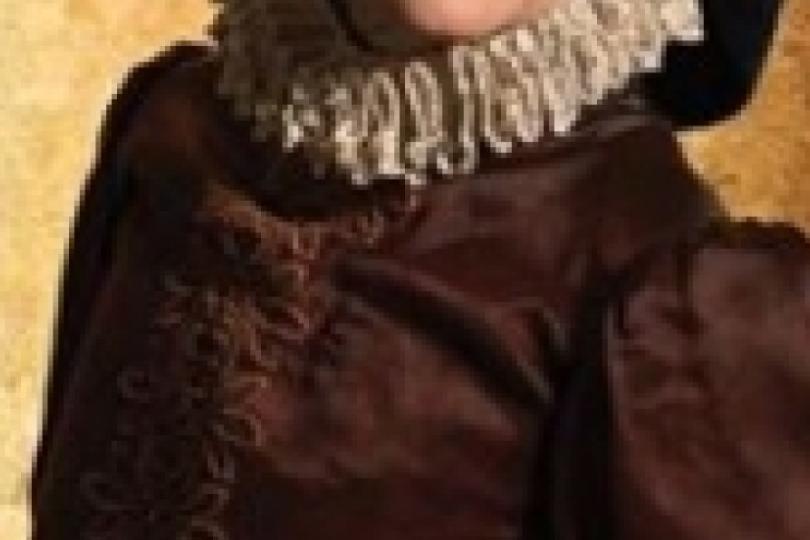REVIEW: Late to the party: Three plays that opened In February
Review

Writers say the best kind of plot flows naturally from character, so perhaps it’s fitting this column is late because I’m still juggling the deadlines of a bi-weekly review with the staggering of show openings and the various projects I happen to be working on at the moment. Our juggler is not proud of this — we could even say “scheduling incompetence” is his Tragic Flaw. Please try for sympathy as we approach his latest adventures.
TRISTAN & YSEULT runs at The Guthrie’s McGuire Proscenium through March 23rd, so there’s still a respectable amount of time to catch this one. It’s a touring show from Kneehigh Productions, based in Cornwall in the UK (for a land-locked American city, we sure get a lot of traffic from across the pond). Kneehigh brought us the remarkable Brief Encounter in 2010, so I was excited about this show for a while before I saw it (a long while, as it turned out). Back in ought-ten Brief Encounter effortlessly rang my three aesthetic bells: artistic integrity, professional rigor and theatrical joy, as it deconstructed (without disrespecting) an old romantic film from the 1940s. It’s hard to describe the appeal of it, except to say it had the comfortably open and playful feel of devised work with the incredible range of talent and precision you expect from Broadway or one of those hipster circuses (and by “Broadway” I don’t mean the Olympic-style belting dumped onto theatre by television shows like American Idol—I mean gifted and trained artists who use their instruments to communicate with us on multiple levels).
There’s actually a lot of circus-like action in Tristan & Yseult - bodies stretching themselves in harnesses or suddenly flying through the air. These acrobatics are meant to physicalize emotional states, but the show – especially considering the source material—gives off a tepid heat. T & Y is an Arthurian love story that predates King Arthur, but was then folded into the cycle of myths and tales surrounding the King and his Round Table (and may have influenced, by which I mean created, the famous Lancelot and Guinevere triangle). The tale’s most celebrated theatrical incarnation – before now – was Richard Wagner’s operatic take. We’re talking star-crossed lovers, betrayal, lies, murder – opera-level mishegas.
But while there’s quite a bit of song in the show – from a terrific band led by musical director Ian Ross with vocals (mostly) from the extremely gifted Carly Bawden, who also acts in the piece – the emotional calisthenics rarely approach the Wangerian. As with Brief Encounter the adaptation and direction by Emma Rice is both playful and immaculately staged; the performances are bursting with talent, particularly Ms. Bawden, Etta Murfit, Craig Johnson and Stuart Goodwin; clever tricks, surprises and gags abound. Somehow, the company kept us close to the beating heart of Brief Encounter throughout similar shenanigans – the same does not happen here.
It’s almost like watching The Guthrie Acting Company (when they had one, that is, before more pressing budgetary concerns – like the espresso machine in the executive washroom – took its place) do their umpteenth production of Arsenic & Old Lace: while all the ingredients and talent are in place, you can’t shake the feeling that on some level they’re just going through the motions, even when those motions include literal flights of fancy.
The magical closing date of March 23 saves me again from irrelevance with SHAKESPEARE’S WILL over at The Jungle Theatre. I did a little experiment with this one. I’ve gotten myself onto several publicists’ mailing lists (say that three times fast). When I got the invite to Shakespeare’s Will I decided to say yes without reading any of the promotional material – I would go into this show blind.
This turned to the play’s advantage – it's a one-person show, not always my favorite form. A few years back, a mentor explained to me that I was prone to confusing “drama” with “theatre”- often, one can exist without the other, and I had gotten into the habit of thinking the “best” theatre was a combination of both (I guess I still do – slow learner). I bring that up now because one-person shows tilt the focus toward performance – what drama there is tends to be second or even third hand - even the greatest performers have trouble generating conflict all by themselves (please feel free to email me the exceptions – I learn slow, but I do enjoy the process).
Luckily for the audience, Shakespeare’s Will has a great performer in Cathleen Fuller, who easily dominates the stage and carries the evening. Bain Boehlke directs and designs with his customary flair – the set design is especially magical – somehow a little different every time you shift your focus from Ms. Fuller to a widescreen view. Would that Vern Thiessen’s play offered as solid a third leg as these collaborators warrant.
While there are some really clever, even brilliant lines for Ms. Fuller, the play has three major flaws that kept distracting me, try as I might to enjoy it. Ms. Fuller plays Shakespeare’s wife, Anne Hathaway (yes, that’s her name) – the play begins shortly after his death, with Anne girding herself to read the great playwright’s last will and testament. She begins her narrative speaking to the dead Will himself – while an effective idea emotionally, this leads her to tell him many, many things he already knows. If Mr. Thiessen had abandoned a desire for exposition – that is, if her purpose in talking to her dead husband was to reveal events and emotions he didn’t know - that might have carried the day. In her explication of people and events, Anne often speaks for both parties in a kind of “he said”/“I said” ping-pong whose rhythm tires the ear rather quickly, even from a performer of Ms. Fuller’s caliber. Lastly, and most crucially, Mr. Thiessen saves several facts, including the contents of the will itself, for a melodramatic reveal near the end of the piece. While I enjoy a good melodramatic reveal as much as the next fella, I couldn’t shake the feeling that these particular facts were actually the engine driving the play, and had we begun rather than ended with them, Anne Hathaway might have kept us enraptured with her righteous rage from start to finish.
While one always wishes for enrapturement, those brilliant lines, Ms. Fuller’s acting and the onstage world Mr. Boehlke creates for them make for a brisk 75 minutes – despite my caveats. You’ll have to decide for yourself if there’s enough theatrical nourishment to warrant a main course.
Finally, a big, fat mea culpa: Penumbra’s electrifying THE BALLAD OF EMMETT TILL closed on March 2. I would have liked some small hand in helping this show build an audience, since it’s an almost perfect indicator of why theatre exists and will continuing existing long after virtual worlds have taken over every other art form.
I say “almost perfect” only because the show’s creators could not resist a little bit of underlining and social studies toward the piece’s end. Until (and even) then, it’s a cultural bullseye, the kind of tragic story we need to tell each other again and again. Like individuals, cultures that refuse to look closely at themselves, to identify and expurgate complicated (and intense) thoughts, fears and emotions, run the risk of a tragic insanity. Emmett Till is essential not only because the artistic team approached their work with a brilliant and sorrowful joy, but because failure to re-live these stories in the safe (and communal) space of the theatre leads to a world in which a celebrated media figure can call The President of The United States a “subhuman mongrel” with relative impunity. Such poison in the soul cannot be cleansed by rational argument – only ritual will suffice,and for many of us theatre is the only ritual we have left.
For those of you who don’t know the story – actually, shame on you if you don’t know the story – Google it right now.
The artistic team: Ifa Bayeza (playwright), Talvin Wilks (director), Sanford Moore (musical director). The cast: Sha Cage, H. Adam Harris, Darrick Mosley, Greta Oglesby, T. Michael Rambo and Mikell Sapp. With the help of the great Maruti Evans (Scene Design), Marcus Dilliard (Lighting), Matthew LeFebvre (Costumes) & Martin Gwinup (Sound) they not only created a beautiful, stirring and necessary evening of theatre, but put lie to the ruthless Killer who laughs at Emmett’s pleadings, telling him there’s no one to listen, he will soon disappear from the face of the earth. No, thanks to these great artists, Emmett Till is given the last word, and the intolerant shown up for what they were all along: nobody, shadows, a passing foul wind.




